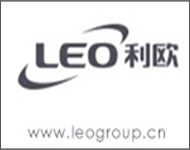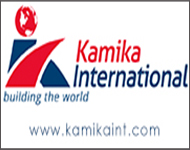Headlines
- Infrastructure and Housing Drive Rapid Growth in Tanzania’s Construction Sector
- Ethiopia Breaks Ground on Africa’s Largest Aviation Construction Project
- Groundbreaking Ceremony Marks Start of Sh50 Billion MTRH Construction Project
- TANROADS-World Bank Alliance Powers Massive Road and Airport Upgrades Across Tanzania
- Kenya Breaks Ground on Sh5 Billion China-Kenya International Commerce Center in Nairobi
- Construction Begins on $2.15 Billion Uvinza–Musongati Railway Project
- Kenya Secures Chinese Funding for Sh5 Billion Nithi Bridge Reconstruction
- Construction Nears for ELCT Facility Backed by Samia’s 250 Million Boost
- KeNHA Kicks Off Construction of Major Kenya-South Sudan Road Project with AfDB Support
- Tanzania Government Allocates 100 Billion Shillings for Bridge Constructions in Lindi
East Africa Market Raises Hope for Cement Makers
Cement makers say public sector infrastructure projects and the rapidly growing middle class in the East Africa region will be the main drivers of cement consumption in the battle for market share.
Kephar Tande, chairman of the East African Cement Producers Association, said Friday that the ongoing regional trade integration and an expected surge in housing demand will be the new battlefront for market share as new entrants debut in the industry.
"Infrastructure is top priority all across the regional trade bloc and this will be the engine of growth. The region's middle class is also growing rapidly and the young population is expected to boost demand for housing," said Tande, also managing director of East African Portland Cement Company.
"This are the two aspects that will change the scenario." Competition in the market has intensified on the back of new entrants -- Mombasa Cement, National Cement and Savannah Cement -- and expanded capacities by existing producers, which is expected to keep prices of the key construction commodity stable. Price undercutting has been noted to be the main way cement makers capture market share in Kenya as opposed to relying on supply and demand forces.
"There is more pressure and we are unlikely to see growth in prices in the foreseeable moment." Current retail prices of the commodity range from Sh650 to Sh720 depending on the brand and distance from factory. Tande said the slowdown in building and construction sector has impacted negatively on cement consumption.
"We are certainly feeling the pressure. Demand has cooled down as many consumers adopt a wait-and-see attitude," he said, adding that the going will be a little difficult for cement producers until the credit sector recovers. Consumption per capita stands at about 58Kg a year in Kenya, which is slightly below the regional level of 60Kg.
Domestic market share in 2011 stood at 40.5, 24, 15.5, 13 and 7 per cent for Bamburi Cement, EAPCC, Athi River Mining, Mombasa Cement, National Cement and Savannah Cement respectively, according to a June 2012 cement sector report by Standard Investment Bank. Factors piling pressure on local manufacturing at present include the increasing threat of cheaper imports, energy and fuel costs and currency depreciation. "All these have been going up while prices have remained stagnant," said Tande. The manufacturers now want cement importation halted, arguing that the region currently has surplus production.
Source : allafrica.com
Posted on : 04 Sep,2020
Buildmart is Africa's leading directory and market news website for the building and construction industry | Kenya | Tanzania | Rwanda | Ethiopia
Exhibitions In Africa
- 27th Buildexpo Kenya 2026
KICC, Nairobi, kenya
08 - 10, July 2026 - 11th Afriwood Kenya 2026
KICC, Nairobi, kenya
08 - 10, July 2026 - 11th LightExpo Kenya 2026
KICC, Nairobi, kenya
08 - 10, July 2026 - 10th Minexpo Africa 2026
KICC, Nairobi, Kenya
08 - 10, July 2026 - 27th Buildexpo Tanzania 2026
Diamond Jubilee Expo Center, Dar-es-Salaam, Tanzania
23 - 25, Sep 2026 - 10th Afriwood Tanzania 2026
Diamond Jubilee Expo Center, Dar-es-Salaam, Tanzania
23 - 25, Sep 2026 - 10th LightExpo Tanzania 2026
Diamond Jubilee Expo Center, Dar-es-Salaam, Tanzania
23 - 25, Sep 2026 - 10th Minexpo Tanzania 2026
Diamond Jubilee Expo Center, Dar-es-Salaam, Tanzania
28 - 30, Oct 2026





















